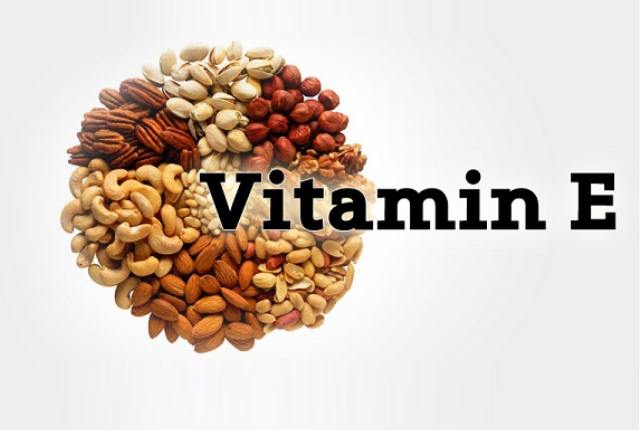Thick and lustrous hair symbolizes good health, youth and vitality. With the increasing levels of stress and pollution in today’s world and the depletion of essential nutrients in our diet due to excessive use of pesticides and fertilizers, hair thinning and hair fall has become one of the most common ailments afflicting women.
Women undergo hormonal fluctuations, irrespective of their age throughout their lifespan, whose major side effect includes pattern baldness and hair thinning. Moreover, birth control pills have also been associated with hair thinning and hair fall as one of its major adverse effects.
However, a healthy lifestyle and the intake of certain vitamins in correct dosages can help overcome hair thinning by nourishing your hair from its roots. Despite the fact that many hair products like hair spas, conditioners and shampoos are available at exorbitant prices, we often tend to ignore simpler ways of growing healthy and thick hair by enriching our diets with vitamins, minerals and nutritious food.
Moreover, hair products often contain harsh chemicals that can cause permanent and irreparable damage to your hair. Hence, natural ways of obtaining thick hair not only helps you strengthen weak hair, but also aids in keeping all the side effects at bay.
Role of Vitamins In Thickening Hair
Hair is made up of an intermediate filament called keratin, a protein that acts as a scaffold for hair and is responsible for strengthening its shaft. The scalp is made up of cone shaped protrusions called papillae that are comprised of hair follicles or roots from which the hair originates. Papilla supplies blood and feeds the hair follicles with all the essential nutrients required to promote hair growth.
Hence, foods rich in essential vitamins and minerals that improve blood circulation to the scalp play a major role in strengthening the hair from inside, thus reversing hair thinning and leaving you with thick and lustrous hair. Read on to familiarize yourself with the different vitamins that can help you maintain a good hair volume.
Hair Thickening Vitamins
1. Vitamin B Complex
A family of about nine vitamins, vitamin B – complex includes a wide range of vitamins like biotin, niacin, folic acid, inositol, pantothenic acid, pyridoxine and cyanocobalamin that play a crucial role in preventing hair shedding. Niacin aids in improving blood circulation to the scalp, thus promoting the re-growth of hair. Biotin and pantothenic acid prevent hair loss by enhancing the production of keratin, a fibrous protein that forms a structural component of the hair.
Folic acid, cyanocobalamin and pyridoxine speeds up the production of hemoglobin, which is crucially important for carrying oxygen to the hair follicles. Foods rich in vitamin B like green leafy vegetables, avocados, cauliflower, carrots, fruits, chicken, liver, dairy products, nuts and brown rice not only help you add volume to your hair, but also makes them shiny and silky.
Antioxidant Vitamins
Free radicals are molecules that are released on exposure to pollution, dust and radiation and as a byproduct of metabolism. They can accumulate in the body over a period of time and cause considerable damage to the hair follicles. This not only makes the hair brittle and weak, but also blocks the growth of new hair. Antioxidant vitamins namely vitamin A, C and E scavenge free radicals from the body and protects cells and hair follicles from getting damaged.
2. Vitamin A
Also termed as retinol, vitamin A is involved in activating sebaceous glands that produces sebum, a fluid required for lubricating the scalp. Sebum works as a natural moisturizer and prevents hair fall due to dry scalp.
Hence, maintaining sufficient levels of vitamin A in the body through the consumption of foods like dark leafy vegetables, broccoli, carrot, tomatoes, spinach, papaya, peas, egg and milk can help you overcome vitamin A deficiency and maintain thick hair. Zinc is essential for moving vitamin A from the liver and therefore, intake of foods rich in zinc like oysters, beef, chicken, beans and nuts can also prevent hair fall.
3. Vitamin C
Besides being one of the most potent anti-oxidants, vitamin C or ascorbic acid also acts as a powerful immune stimulant. It promotes blood circulation to the scalp and aids in providing essential nutrients and minerals required for the growth of healthy hair. It acts as a cofactor for the production of collagen and aids in the production of elastin and proteins that add strength to your hair.
Also, vitamin C promotes the secretion of sebum, thus preventing the scalp from becoming dry. Most abundantly found in citrus fruits like oranges, grapefruits, lemon, strawberries, kiwi, papaya, melons, pineapple, broccoli, spinach, bell peppers and tomatoes, vitamin C serves as an excellent hair thickening vitamin for restoring the health of your hair.
4. Vitamin E
Regular use of vitamin E promotes the growth of blood capillaries to the scalp and nourishes the hair, thus leading to the growth of thicker hair. It prevents hair loss due to dry scalp and split ends. Often found in almonds, broccoli, avocado, leafy greens, fish, egg yolk and tofu, vitamin E can improve hair growth by supplying oxygen to the scalp.Nonetheless, it is advisable to stay cautious about the correct dosage of vitamin E being administered, since vitamin E being a fat-soluble vitamin is retained in the body for a longer duration of time. Hence, a slight increase in the dosage could lead to vitamin toxicity, leading to unwanted side effects.
Even though, vitamins obtained through dietary sources can certainly help you obtain thick and lustrous hair, synthetic vitamin supplements may not give you the same results. Dietary sources are enriched with enzymes, organic nutrients and minerals that aid in processing vitamins in the body. As a result, the bio-availability of vitamins obtained through natural sources is much higher than synthetic vitamins and are thus required in very small quantities for maintaining the growth of thick hair.
On the other hand, synthetic vitamins are packed in very high dosages due to their slow rate of absorption in the body. Hence, multi-vitamin supplements can only be used to treat severe vitamin deficiencies, provided you do not exceed the recommended daily allowances. Consulting a professional health practitioner thus becomes mandatory to help you decide on an appropriate multi-vitamin formula and an appropriate dosage to keep its side effects at bay.
Also, one should stay vigilant about the existence of any contraindications of multi-vitamin supplements with other medications and medical conditions, to avoid possible drug interactions and their fatal consequences. In conclusion, moderation is the key to extracting the benefits of vitamins to prevent the growth of frizzy and thin hair and avoid the side effects associated with them.
Caution: Please use Home Remedies after Proper Research and Guidance. You accept that you are following any advice at your own risk and will properly research or consult healthcare professional.





